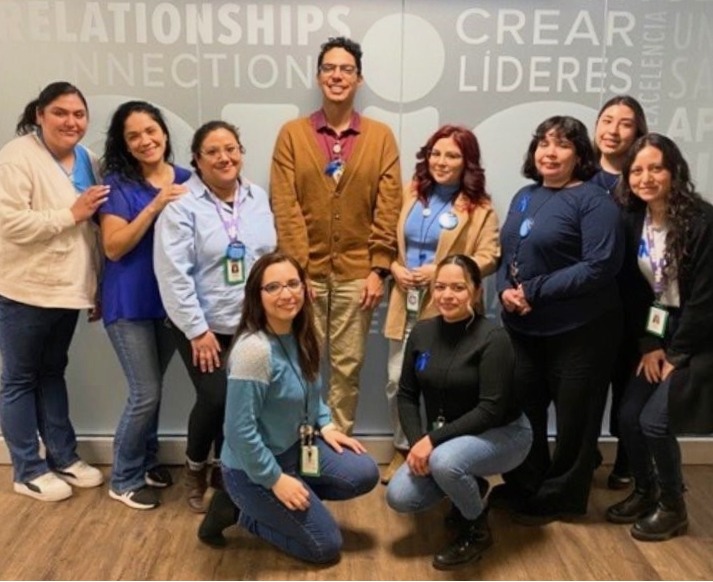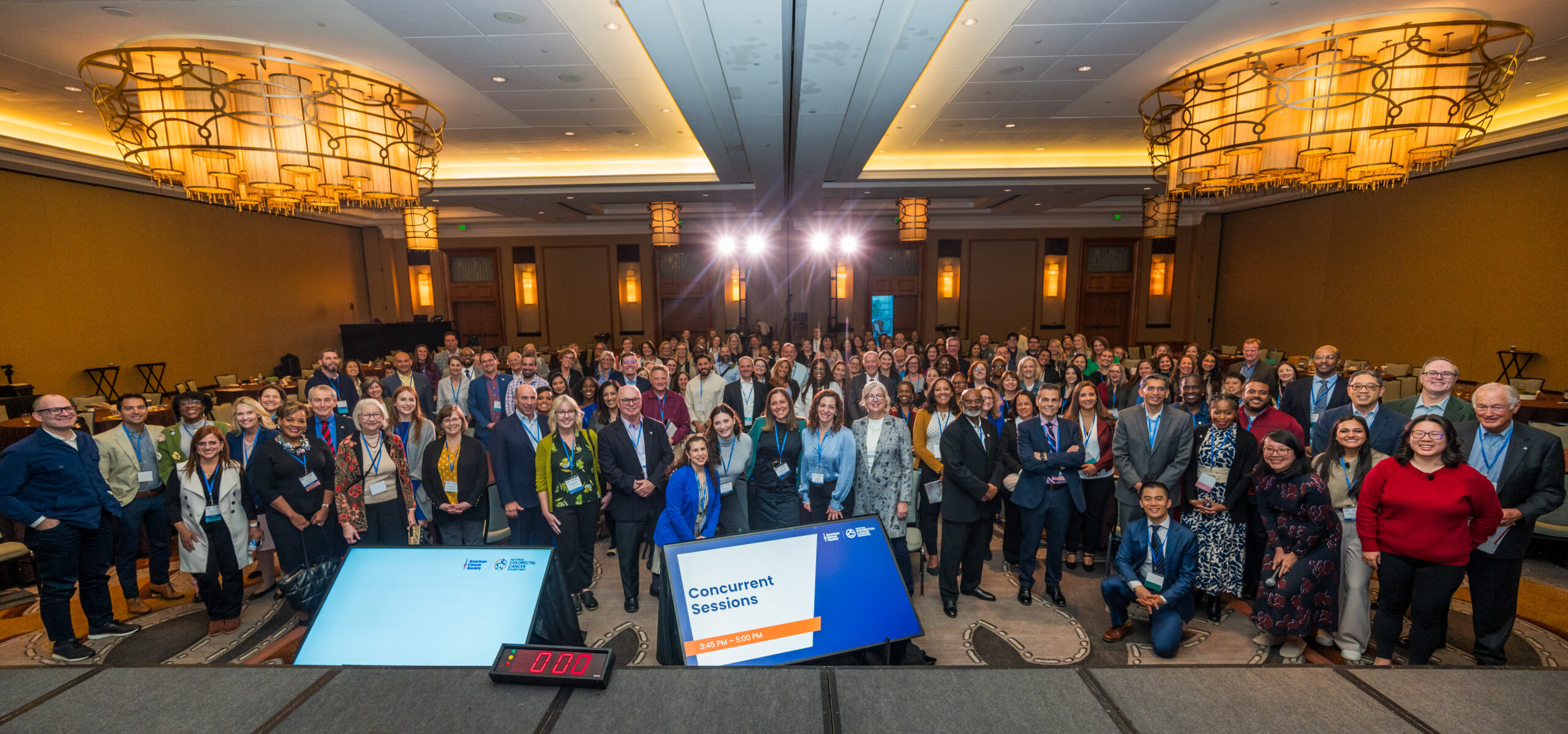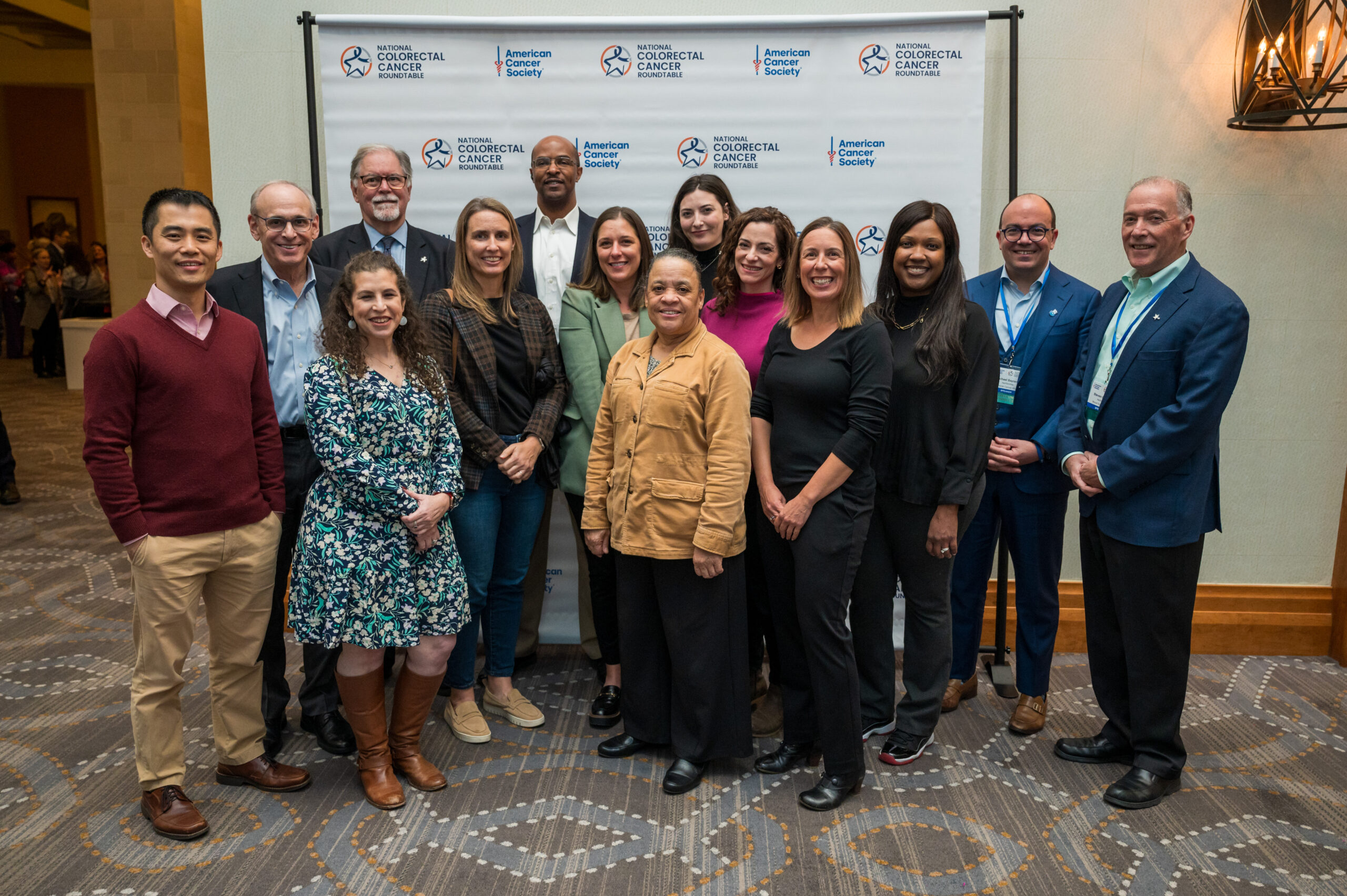Interview with Erie Family Health Centers – 2025 National Achievement Award Grand Prize Winner

Date: May 6, 2025
As part of a series, the ACS NCCRT is thrilled to highlight our 2025 National Achievement Award Winners with in depth blogs on their work. Below you’ll find the first of five interviews with awardees about what they did to increase colorectal cancer screening (CRC) rates as well as their lessons learned from their efforts.
Quick Stats
Organization: Erie Family Health Centers
Interviewees:
- Miranda Hart, MD, Senior Medical Director of Integrated Primary Care, Behavioral, and Population Health at Erie Family Health Centers
- Liliana Luna, BASc, Senior Manager of Patient Programs – Population Health
The Interview
When and why did Erie Family Health Centers (Erie) decide to focus on increasing colorectal cancer (CRC) screening?
Erie decided to amplify its focus on increasing CRC screening rates after the COVID pandemic in 2023. Our rates of CRC screening had decreased during the pandemic; Erie had a 49% screening rate at that time. Additionally, the American Cancer Society’s age recommendation for starting CRC screenings for those of average risk had been changed to 45 so we knew we would need to have a targeted push.
Eighty-eight percent of Erie patients are either Medicaid recipients or uninsured; therefore, Erie’s target audience—specifically those aged 45 and over who are at higher risk for developing CRC—face significant challenges to obtain colonoscopies, as many specialists are outside of network coverage or do not accept uninsured patients. Unfortunately, we had a patient who experienced significant delays in getting to colonoscopy after a positive FIT/FOBT test in part because of the pandemic, who may have been diagnosed with a more advanced rectal cancer than if he had had the follow-up colonoscopy earlier.
Each of these factors contributed to Erie’s commitment to increasing access to and rates of CRC screening and ensuring pathways to follow-up colonoscopies for our patients aged 45 and above, with an emphasis on never-before-screened individuals.
Did Erie set a CRC screening goal? If so, what was it and how did you measure it? What was the final outcome?
Erie’s clinical goals are based on the Health and Human Resources Administration (HRSA) Universal Data System (UDS) benchmark of 50%, but set a stretch goal for the 90% percentile for the measure (58%). Erie also encouraged providers to meet the Health People 2030 target of 72.8% for their individual panels. Erie measured our progress towards this goal through UDS data collection and internal Epic (Erie’s electronic health record system) reports tracking completed screenings. Erie has made consistent gains year after year; when we last reported our screening rate for the ACS NCCRT National Achievement Awards nomination in December, it had jumped from 49% to 59% over the course of our project. Today, Erie’s colorectal cancer screening rate has continued to increase to a rate of 64.2%!
Did Erie have a CRC screening champion for your efforts on staff or in the community? If so, who were they and how did you engage them?
Erie engaged two CRC screening champions for these efforts: Dr. Miranda Hart, Senior Medical Director of Integrated Primary, Behavioral and Population Health, and Liliana Luna, Senior Manager of Patient Programs, served in this role. Dr. Hart and Liliana regularly discussed Erie’s efforts i with providers, staff, and through patient communications. Together, they designed and implemented a structured outreach campaign that identified and supported patients due for CRC screening, including those needing additional help to complete follow-up steps and colonoscopy.

What interventions or activities did Erie use to increase CRC screening rates?
Through a combination of intentionally designed patient, community, and Erie provider education, Erie implemented several interventions and activities to ensure that our most at-risk patients ages 45 and above received information about their risks, the importance of CRC screening, and an explanation of the various screening options—FIT, Cologuard, colonoscopy—available to them. In fact, Cologuard was introduced as an additional screening modality at the onset of this project.
Erie developed marketing campaigns targeted at those who have never been screened. They received consistent reminders and education on the importance of screenings; this included conducting outreach at the 3, 6, 8, and 10-month marks for patients to ensure we closed the loop and provided support if needed. Erie’s patient navigators provided onsite and virtual/phone support to our most at-risk patients requiring follow-up colonoscopy. They assisted patients with scheduling colonoscopies and enrolling in sliding-fee scale programs with primary hospital partners. They helped patients communicate directly with hospital partners to ensure patients were prepped and understood the steps for completing colonoscopy—especially critical for the 45% of Erie patients who speak languages other than English.
We also utilized features within our electronic health record, Epic, to support our activities. Erie developed workflows within Epic enabling the use of Health Maintenance data to remind providers to notify their patients of screening guidelines during their regular medical visit, and to identify and conduct outreach via text and phone call to patients who, according to their Health Maintenance record, are due for screening. Epic also allowed Erie to implement bulk ordering of screening kits for the first time.
Additionally, Erie leveraged its partnerships with hospitals and supporters like Uber Health to address other barriers to care like transportation and costs. Erie screens all patients who visit Erie for resource needs; those who screened positively for transportation and medical insurance needs received immediate support from patient navigators. Our transportation partner, Uber Health, provided free rides to and from colonoscopy procedures; additionally, through our relationship with Swedish and Northwestern Hospitals, Erie provided direct referrals to colonoscopies for uninsured patients.
What does Erie consider its greatest success while working to increase CRC screening rates?
When Erie launched this initiative in 2023, its CRC screening rate was 49%. As a result of Erie’s efforts since then, our rate has jumped to 64.2%, which puts Erie in the 90th percentile nationally among FQHCs and exceeds the national FQHC average rate of 46%. We consider this increase, which represents patients who had never been screened before and patients in need of follow-up support to obtaining a colonoscopy after a positive fecal test, to be our greatest achievement.
What was Erie’s biggest lesson learned while working to increase CRC screening rates?
Erie’s biggest lesson learned while working to increase screening rates is that it is truly a team effort. Erie’s providers, patient programs representatives, and population health navigators worked together to approach our patients first on a population health level and then on an individual level which allowed us to meet patients where they are and connect them to the resources needed to complete their screenings.
What else would you want others to know about how Erie increased CRC screening rates?
We are not done! Erie remains committed to continuous improvement and expanding our reach to ensure more patients are screened and supported throughout that process.

The ACS NCCRT would like to thank the Erie Family Health Centers team for their time to complete this interview. Erie‘s work to increase CRC screening rates earned them the Grand Prize for the 2025 ACS NCCRT National Achievement Awards. Learn more about Erie Family Health Centers by visiting their website.
We Highlight Successes, Leaders, Best Practices, And Tools That Are Making An Impact In The Nationwide Movement To Reach 80% Screened For Colorectal Cancer.
Do you have a suggestion for a future blog topic? We welcome you to share your suggestions by emailing [email protected].
Blog Policy
Opinions expressed in these blog posts are that of the author and do not represent policies of the National Colorectal Cancer Roundtable or the author’s institution.
Our staff moderate all comments on the 80% Blog. While we do not censor based on point of view, we will delete or edit comments that are offensive or off topic. Click here to view full version.
© 2025 American Cancer Society National Colorectal Cancer Roundtable. All rights reserved.


